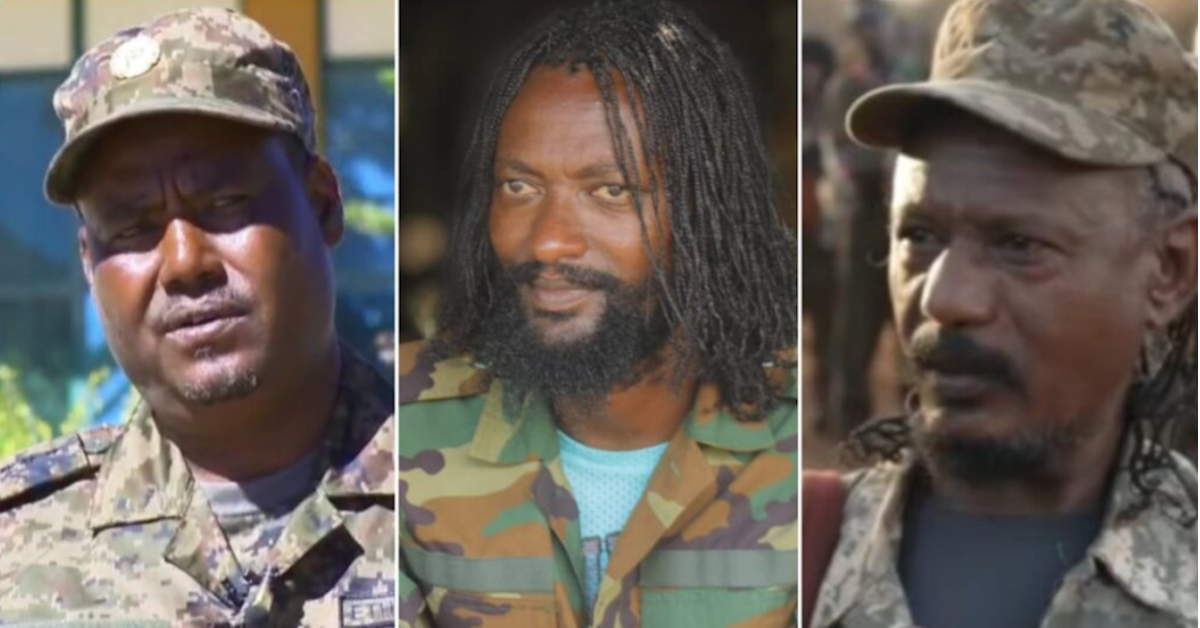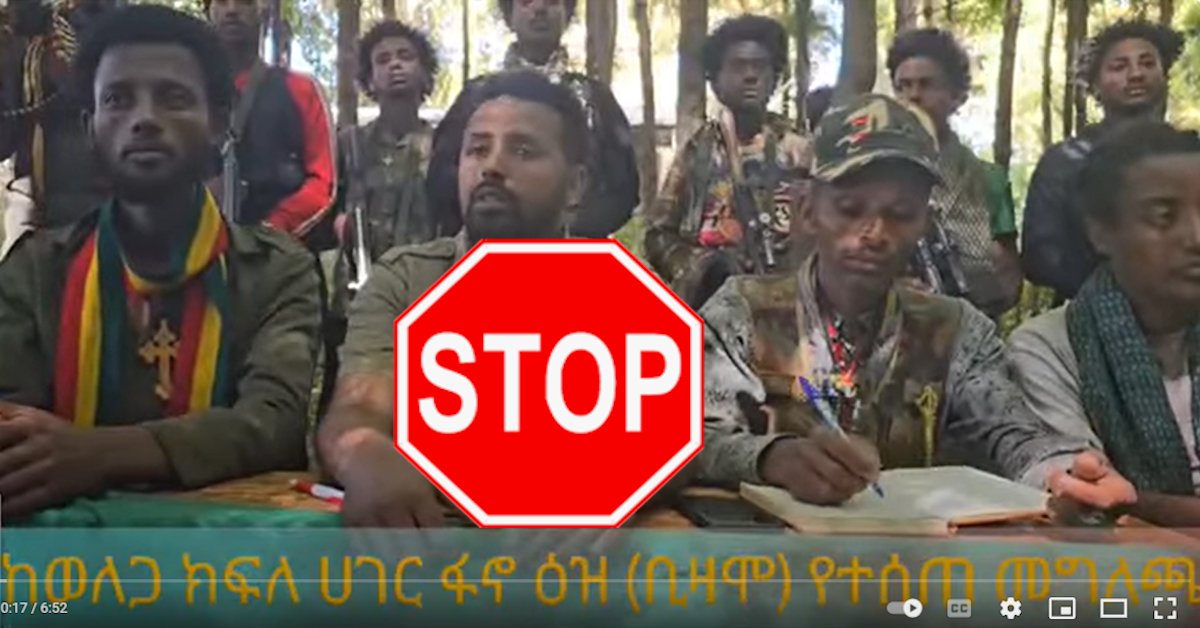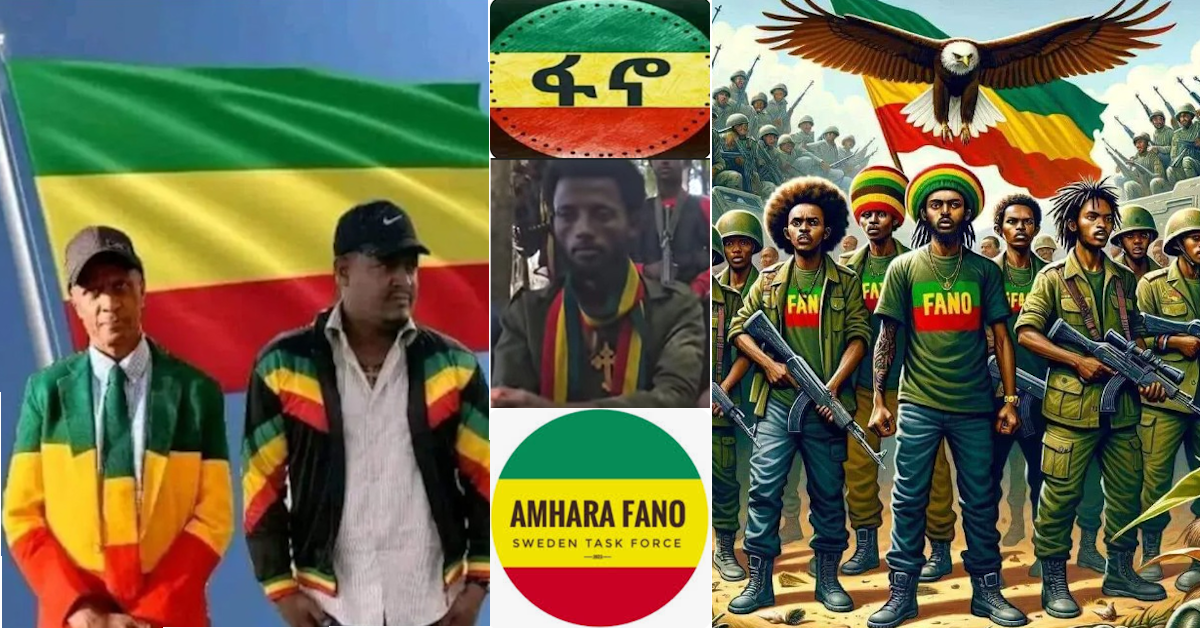November 21st, 2023 was indeed a sad day!
The unsaid reason behind the failed peace talks between the Ethiopian government and Oromo Liberation Army (OLA) was all too evident from a statement issued by Mr Redwan Hussien—PM’s advisor and on-behalf chief negotiator—on his X (formerly Twitter) social media page last night. To get the clue, you do not have to look beyond the first sentence of the statement.
Mr Redwan Hussien and his government did not accord even a modicum of courtesy to refer to the party to the peace talks by their name. The use of derogatory name “Shene” speaks volumes as a good indicator that no genuine peace talks were intended. The use of derogatory names is, in fact, in the true character of all Ethiopian regimes, past and present, not only for political groups like OLF-OLA, but also for denigrating some of the nations, nationalities and peoples of the Ethiopian empire.
For the most part, this article was translated into Amharic and featured in the Ethio Forum News Documentary on December 10, 2023. Click the following link: ከድርድሩ ተሳታፊዎች አንዱ የላኩልን ፅሁፍ|ETHIO FORUM.
The Statement attempts to make the reader believe that the Ethiopian government stands for peace. The opposite is, in fact, true. The Ethiopia regime is afraid of peace making, for peace means accountability, justice, and much more, which the regime is not willing to accommodate.
In the Statement, the bombastic phrases like “constitutional norms” as well as arrogant words and phrases like “intransigence”, “obstructive”, and “unrealistic demands” (without revealing what these are!) are also from same phrasebook of the regime past and present.
The “constitutional norms” they are referring to is all about their own self-preservation (of corrupt politicians) and doesn’t even extend to the country of empire which is now in tatters. Haile Selassie and Mengistu used these and similar phrases like “sovereignty” before their downfall; and EPDRF who begot the current regime also used the same mantra. The current regime is also repeating the same as if they care beyond their own self-interest.
They have no shame in suggesting OLA’s demands being unrealistic, characterizing them as obstructive, and the peace talks failing due to intransigence. You get no prize for guessing what the Ethiopia government was trying to do here. As their predictable modus-operandi, perhaps attempting to co-opt top OLA leaders with [ineffectual] ministerial and departmental portfolios bundled with rent-free villas and chauffeured V8 seemed to be on the card. Perhaps this was on offer (more like a bribe) in return for a total disarmament the Government always wished for. This kind of cheap and corrupt thoughts are, without a doubt, light-years away from what occupied the thoughts of OLA freedom fighters and leaders as an outcome of the peace talks. The Oromo people have bitter memories of the disarmaments of 1991 and 2018 and the Government was surely trying to be lucky third time.
Why light-years apart you may ask. Let us remind ourselves that the majority of OLA fighting forces are the Qaarree & Qeerroo youths that paved way for the current government to assume power in 2018. That was following sacrifices of the lives of 5000+ Oromo youth in the opposition against the EPRDF government from 2014 to 2018. Although official figures are not known, there are significant sacrifices of OLA combatants from 2019 till now.
Of course, the sad part of the conflict is the thousands of innocent lives, not only caught in the crossfires, but deliberately targeted by regional police and militia, and the federal army, at times assisted by drone attacks. The regional and federal government used everything at their disposal to terrorize the Oromo civilians with unimaginable atrocities in the hope that people would be scared not help OLA fighters with food and shelter. Mercenary-like individuals have also been used to unleash terror and blame it on OLA. One such case, by Mr. Fekade Abdisa, was comprehensively reported by the Washington Post on May 21, 2023. The terrorizing of civilians by the Government was taking place and being intensified even while the peace negotiation was in progress in Dar es Salaam.
OLA fighters and leaders have come a long way and no doubt been through hell and back. They are not the kind of souls that could be bought for government positions and material gains at the expense of what they stood for—the rights of the Oromo people that pledged for with their lives. Could the firm stance of rejecting the Government’s bribery be regarded as an intransigence referred to? Could refusing to surrender to the Government be regarded as an obstacle? Could demanding for the release of Oromo political prisoners be regarded as unrealistic? Could dealing with the Oromo Questions, explicitly agreed to for consideration in 2018, such as the use of Afan Oromo at the federal level, and the status of the capital city Finfinnee (aka, Addis Ababa), be reclassified as unreasonable? Could asking for putting in place of democratic processes for safeguarding smooth power sharing during the transition period be regarded as unreasonable or asking too much?
Only a few days ago, the PM had no qualms boasting in the parliament by saying that no one can defeat them because they are a 10-billion-dollar entity. By that, he was referring to the dollar amount he can access by delaying all the country’s projects to fund a war effort if required. We were witnessing of a leader who has no shame to say that he can usurp all the ill-gotten resources of a poor country through loan, aid, and what-not, for funding a war of self-preservation. This speech was not made in the context of a foreign enemy, rather with domestic citizenry with political opposition.
Ethiopia is a country where sovereignty is defined as self-preservation of corrupt individual politicians; where peace is dreaded to hide away from accountability, where war means the currency for the survival of corrupt politicians with no regard for the downsides of war in the destruction of precious human lives and collateral damages into the trillions.
So, how do we expect a peace deal from such a regime? Based on the track-record of the regime, most were very sceptical of a positive outcome for the peace talks right from the word go, but it appears that the optimism was simply the measure of respite everyone wished for the untold human sufferings over the last 5 years.
It is a strange thing to say, but we have come to witness that with this regime, even animals needed respite, and farm harvests needed respite. Ethiopia has witnessed genocides and mass killings throughout its history but extending that to the killings of domestic animals and the burnings of farm produces, with the intention of intensifying human suffering is all new MO of this cruel and self-centred regime.
One also wonders if lessons were learned from Tigray war. The obvious answer is sadly no. And the pattern repeats with the ongoing war in Oromia (in fact, the start preceded the Tigray war) and the more recent Amhara war. Ethiopia should be uniquely positioned for using its military might—of the country’s armed forces with full weaponery of tanks, the air force, drones, etc—not for foreign enemies, rather against its own citizens.
Only few days ago, the country unable to feed its citizens—as per assessments by international organizations like WFP—was not hesitant in acquiring the most modern drones by spending millions of dollars. And in tandem with this, the same country was pleading with financial institutions and lender countries to delay loan repayments, which would mean sinking into more debts, in effect borrowing in the names of distant generations into the future; yes, all these to fund the war of self-preservation.
What a mad idea? how are these people allowed to stay in power for a day longer? why are we surprised at all about the peace talks failing? do you think this regime was poised to give peace a chance?
Peace is one thing this regime is dreading most, because peace means accountability; peace means justice; peace means the return of normalcy where everyone lives a normal life and works to their full potential, where poor farmers can harvest their farm produces and sell at free markets. On the contrary, corrupt politicians are all terrified of these positive peace dividends.
As captured by the title of this piece, it was indeed a missed opportunity for peace in Oromia, and for this, the Government of Ethiopia is solely responsible with all the evidence on display for the world jury. For reasons highlighted above, the world communities must be aware of the fact that the Oromo Speaking Ethiopia Government (OSEG) have less to do with the Oromo people by way of representing them. In fact, OSEG is the enemy of the Oromo people as the facts over the last five years clearly demonstrate.
The Oromo people have a rich political tradition that is intertwined with democratic values of their Gadaa system—a subject of socio-anthropological studies the world over—which also deals with Conflict Resolutions which is a core subject of this text. With the Gadaa system, the Oromos learn and practise of democratic values and age-based social responsibilities for lifelong from age-eight onward. It remains to say that the Oromo people and Oromia, indeed, have unique roles to play in the peace making that can shape the geopolitics and resulting prosperity of the Horn of Africa and beyond.


